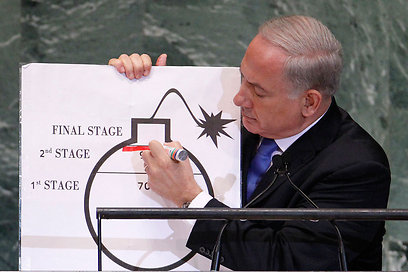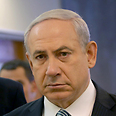Threats are complex. Any decision regarding the nature of a potential threat depends not only on the ability to obtain credible intelligence information regarding the adversary's military capabilities, it also requires an in-depth analysis of the cost-benefit ratio of every military and diplomatic maneuver.
Seemingly, when those in possession of the weapons are dangerous people – the decision should be an easy one. But the reality is more complicated. Take, for example, the regime in North Korea. It's hard to think of a more irrational regime. Moreover, Pyongyang does not have any real supporters or allies, even when you take Russia and China into account. Therefore, we would expect that the US and the world would act to remove this clear threat – yet the West is not taking action.
This is not a sign of weakness or lack of determination. The West wants to see North Korea dismantled of its nuclear weapons. Actually, it prefers to see North Korea fall apart as political entity, but the price is still too high. As long as the price of lifting the threat remains high, the red line will remain far-off. And what applies to North Korea applies even more to Iran.
Iran is larger and stronger than North Korea. It is not a pariah state – certainly not in the Muslim world. Even if the attackers manage to destroy all of Iran's nuclear facilities (which is doubtful), it is safe to assume that a strike will cause many in the Muslim world to view Iran as a victim of "American-Zionist imperialism" and act with resolve (within alliances or alone; covertly or openly) to take their revenge and help Iran rebuild its nuclear program as quickly as possible. An attack, even a successful one, would not wipe out Iran's conventional military capabilities or its economic capabilities (which are far greater than North Korea's).

Netanyahu presents red line at UN (Photo: Reuters)
To make sure that the Iranian threat is lifted, annihilating the country's nuclear program would not be enough. In order to remove the threat, Iran has to be conquered, and a new order has to be established. It is not at all certain that such a conquest would succeed (unlike Iraq before the Gulf War, Iran has not only a large land army, but a very strong air force and navy as well), and in any case it would result in many casualties. The current geopolitical game is meant to make Iran's nuclear program not worthwhile anymore, without reaching the point of a military confrontation.
It seems that Netanyahu understands this. He also understands (and perhaps always has) that the Iranian threat is too grave for Israel to take on alone. The red line drawn by Netanyahu at the UN was meant to erase the previous red line and give the PM more flexibility and maneuverability.
This move was not the result of anything the Iranians did. Rather, it was the result of an understanding of the changing geopolitical reality. When Netanyahu realized that Obama was going to win the elections, he also realized that his ability to pressure the West using aggressive rhetoric had been greatly reduced. The rhetorical flames were lowered immediately, and the metaphorical window of opportunity, which was about to close just a month earlier, opened up again.
These maneuvers, an expression of the understanding of the limitations of Israel's capabilities, proved beneficial to Israel (the American equipment we received is meant to prevent us from launching a go-it-alone strike in Iran, but we will use it for other things). To his credit, Netanyahu realized not only that military action should be avoided at this stage, but also that continuing to issue direct threats will cause Israel damage. Without publicly declaring it, Israel has adopted a new strategy. Israel will use force only as part of an operation that will be led by another country.

















